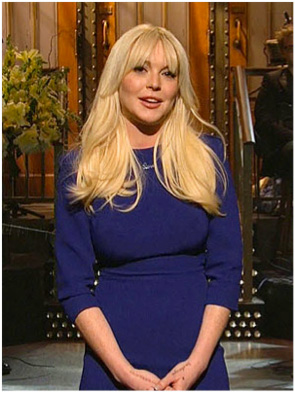- Question: How do the ingredients in e-cigarettes and vaporizers affect respiratory health? - August 16, 2019
- Bad Technique and Vocal Injury - January 9, 2019
- Is Edible Marijuana Dangerous for the Voice? Myths Dispelled - December 18, 2018
- Surprise! You have a hemorrhage - January 31, 2018
- Graves’ Disease: Treatment Overview - September 25, 2017
- Adele and the Stigma of Vocal Injury - July 11, 2017
- Vocal Curbside Consult: How does the thyroid affect the voice? - May 16, 2017
- Vocal Curbside Consult: How do hormones affect the voice? - May 3, 2017
- Vocal Curbside Consult: How do emotion and stress affect the voice? - April 17, 2017
- Vocal Curbside Consult: Vocal Recovery After Illness - April 7, 2017
What does an actress lose when she loses her vocal agility? I faced this question when I watched an interview with Lindsay Lohan on the Today Show. Matt Lauer interviewed the rehabilitated actress, who is currently attempting a comeback after years of drug abuse, smoking, and alcohol abuse. This is not a personal attack on Lohan. But her voice during this interview prompted me to watch her appearance on Saturday Night Live. I was curious to see what she could do while acting with a voice that was so raspy during an interview.

On SNL, I found her voice troubling and, honestly quite distracting. Comedic acting requires some vocal gymnastics; when she tried, her voice cracked.
I am sure she was aware of her own vocal limitations. She forced herself to restrict her vocal range to avoid cracks but it limited her ability to act. I would imagine that an actor needs extreme vocal freedom and the knowledge that you can use your instrument to convey a feeling. Aside from facial expressions, the voice is the only tool that an actor can use to draw in their audience and make the audience feel. When that voice is damaged, can viewers still be moved by the performance?
This is a question that appears to be increasingly relevant. In the early days of film and television, actresses often sang as well as acted, and therefore viewers were assured of hearing a normal voice. However, the industry has changed and the vices that came with stardom have only increased. Stars are also younger and younger, with reality television bringing 10 year olds in to the spotlight. Young stars and starlets are engaging in vocally destructive behaviors earlier in life, including smoking, drug abuse, late-night partying in loud clubs, and an intense work pace to stay in the spotlight. I see the irreversible damage this causes in young actors and actresses in my office every day. The creaky, unreliable voice that used to be the exception is now the norm in many of my patients.

In the 90s, we were painfully amused by the raspy Fran Drescher. But now, this has been accepted in Emma Stone and possibly in Lohan and it makes me wonder what value we place on the health voice. While some are blameless in the causes of their hoarseness (such as Stone, who earned her rasp as a colicky baby), others are not. I still find hoarseness difficult to listen to but I feel increasingly alone in this, as vocal fry becomes trendy and lip syncing and Autotune are acceptable alternatives to vocal health.
I still firmly believe that with good vocal protection, singers and actors can have their fun, but preserve their voices as well.
Tips for vocal preservation include:
- No smoking (tobacco, marijuana, etc)
- No heavy alcohol use (moderation is okay)
- When out in a loud environment (i.e., restaurant, club), keep voice use to a minimum.
- Hydrate well while you are out in a loud environment
- Rest your voice the day after a night out in a loud environment
- Do not go out in a loud environment the night before a voice-related work event
- No drug use
- Learn correct voice use
This last is perhaps the most critical. Every singer and actor needs professional voice lessons (singing or acting voice) to ensure they are using their voices correctly and not potentially causing future damage. A thorough vocal exam prior to these lessons will ensure you have a clean bill of vocal health prior to challenging your voice.
Some of the most moving moments in film and television are brought to us with a single line or a single phrase of a song. What will we lose, as a culture, when these moments are raspy? I hope never to find out. These simple tips will help protect your voice for the future and ensure that when you need to express yourself, your voice does not hold you back.
To learn more about Dr. Reena Gupta and voice preservation, visit: http://www.voicedoctorla.com/



